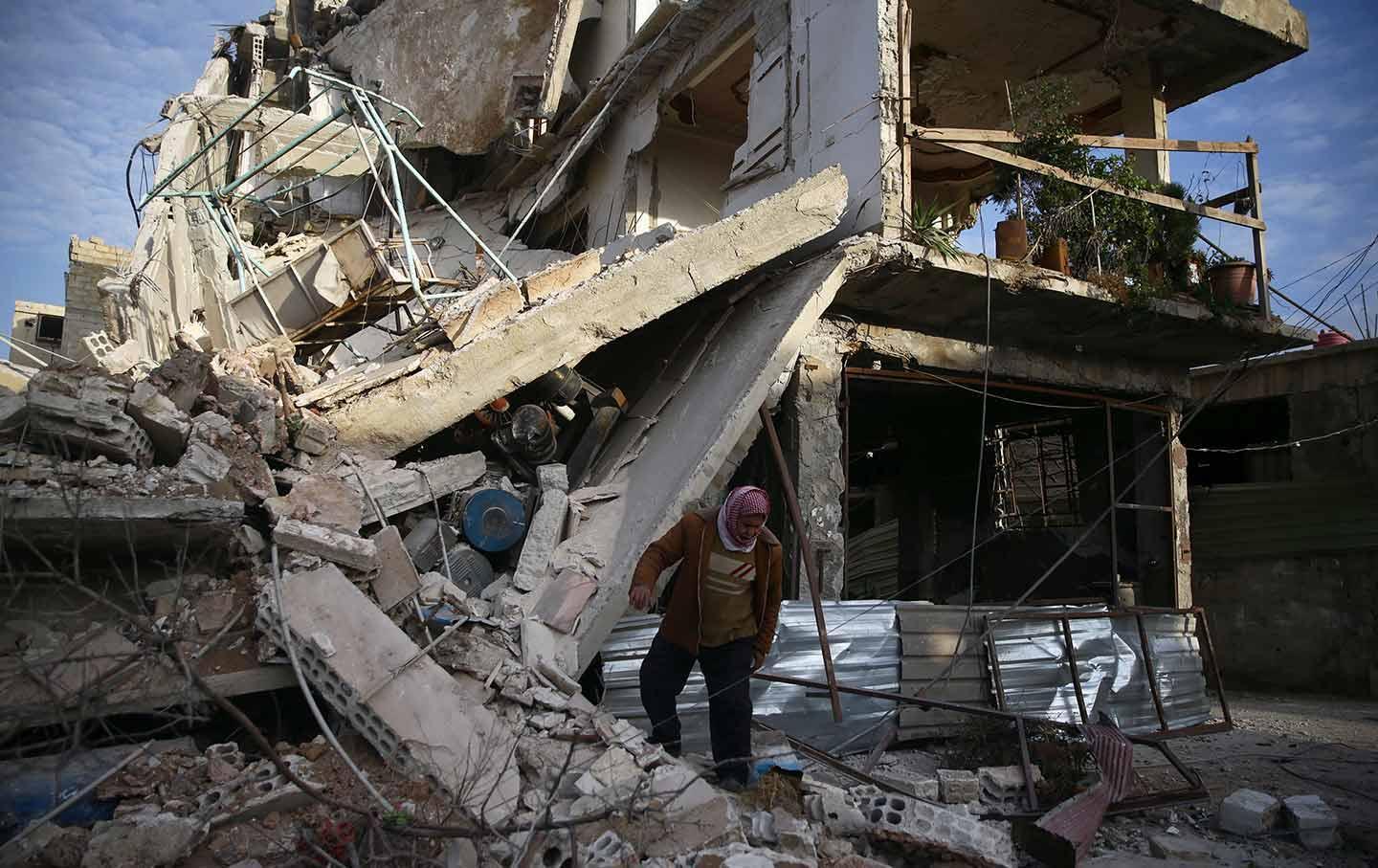
Turkey is seeking ways to increase international pressure to help end violence in Syria’s besieged and rebel-held eastern Ghouta region, as President Recep Tayyip Erdoğan talks to his counterparts for a solution.
“We asked Mr. Putin and Rouhani months ago to hand us the elderly and the children for treatment, yet they were not handed over,” Erdoğan told reporters in Istanbul, shortly before departing for Algeria for an official visit on Feb. 26.
“They were handed to the regime, and now their statuses are uncertain,” the president added.
“We will continue communicating with Putin and Iran,” Erdoğan said.
“If these are not stopped, we will keep witnessing situations like east Ghouta. Turkey is ready to do what is necessary to end the humanity crisis,” the president continued.
Labeling the atrocities a “massacre,” Erdoğan also said if Syria abided by the United Nations Security Council resolution 2254, which calls for a nationwide ceasefire and a political transition, the crisis would be solved.
Russia orders daily cease-fire breaks in Ghouta
Russian President Vladimir Putin has ordered daily “humanitarian pauses” in the besieged eastern Ghouta, Russian Defense Minister Sergei Shoigu said on Feb. 26.
Shoigu said in a statement that a cease-fire would be arranged for the suburb of the capital Damascus between nine a.m. and two p.m. every day starting on Feb. 27. He also said Russia would help set an evacuation route for civilians in the area.
The announcement comes two days after the U.N. Security Council unanimously approved of a resolution demanding a 30-day cease-fire across Syria.
Eastern Ghouta has been under intensive bombing by government forces for weeks. At least 10 people were killed on Feb. 26 as airstrikes and bombing resumed, according to local activists.
Macron, Erdoğan discuss Turkey’s Afrin operation in Syria
On Feb. 26, Erdoğan told French President Emmanuel Macron that Turkey has taken “every precaution to protect civilians from harm” during its military operation in Syria.
The two leaders discussed recent developments in Syria and bilateral ties over the phone, state-run Anadolu Agency has reported.
Erdoğan also shared details about Turkey’s ongoing “Operation Olive Branch” in Syria’s northwestern Afrin district with Macron, the agency reported, citing presidential sources.
The Turkish president told Macron that the “utmost importance” is being given to avoid harming civilians during the operation, said the sources, who asked not to be named due to restrictions on talking to the media.
Turkey launched “Operation Olive Branch” on Jan. 20 to remove Syrian Kurdish People’s Protection Units (YPG) militants from the bordering Afrin region.
The Turkish and French leaders also discussed the latest developments in Syria’s Eastern Ghouta region, the report said.
Home to 400,000 residents, Eastern Ghouta falls within a network of de-escalation zones—endorsed by Turkey, Russia and Iran—in which acts of aggression are expressly prohibited.
On Feb. 25, a United Nations Security Council resolution demanding a 30-day truce across Syria to allow aid access and medical evacuation was accepted.
However, clashes and regime strikes continued in the area on Feb. 25, despite the U.N. call, a monitor said.
Turkey has said the cease-fire would not affect the ongoing “Operation Olive Branch” in Syria’s Afrin district.
The French president, on the other hand, told his Turkish counterpart that a proposed U.N. ceasefire for Syria must be applied across the country, including in Afrin, where Turkey is waging an offensive against the YPG, Agence France-Presse reported, citing the French presidency.
The 30-day ceasefire “involves all Syrian territory, including Afrin, and must be put into effect everywhere and by everyone without delay,” said Macron, during a telephone call between the two leaders.
Macron also said Turkey, Russia and Iran are overseeing the talks in Astana with the aim of ending the nearly seven-year civil war. The three countries have “a direct responsibility in this regard that must be applied on the ground,” he added.